Touseef Yousuf Mir is an ethnographic researcher, teacher, and public engagement & advocacy professional. He currently serves as faculty at the Centre for Development Studies, Department of Social and Policy Sciences (SPS), University of Bath, United Kingdom. His work takes a principally multidisciplinary approach sitting at the intersection of conflict studies, comparative politics, and everyday state and society. Using the ethnographic (qualitative) methodology, his work upends the gaze to the popular experience side of the state-society debate within conflict studies. His work particularly looks at the protracted conflict situation of Kashmir.
Research Affiliates are outstanding team members who collaborate with us remotely on specific research projects.
- Radhika Kumar, MPlanning (India)
- Rosie DeVito, MPH (USA)
- Joy Resor, MUP (USA)
- Midhat Fayaz, Geo-Informatics Doctoral Candidate ’20 (India)
- Athar Parvaiz, Independent Journalist (Kashmir)
- Cassandra Granville, 26th Congressional Hunger Fellow
- Megan Smith, 26th Congressional Hunger Fellow
- Zhu Zin, PhD Geography
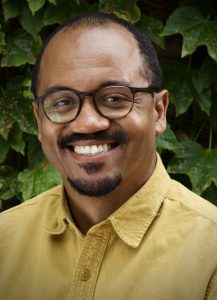 Dr. Cameron Herman is an Assistant Professor in the Department of Sociology and an affiliate faculty member in Africana Studies at Buffalo State College. His teaching and research broadly focuses on understanding the ways marginalized groups experience and navigate social inequalities in urban environments. Cameron has published solo and collaborative journal articles, chapters in edited volumes and online publications on a range of topics including Black artists’ response to gentrification, housing activism and neoliberal governance, Black masculinity in hip hop. In the wake of COVID-19’s onset, Cameron’s research agenda has expanded through collaborations with community partners and equity-minded scholars in the UB Food Systems and Healthy Communities lab to support community-based responses to inequitable food systems in Buffalo, NY. In his free time, Cameron enjoys spending time with his wife and daughter, exploring neighborhoods on his bicycle and photographing everyday life.
Dr. Cameron Herman is an Assistant Professor in the Department of Sociology and an affiliate faculty member in Africana Studies at Buffalo State College. His teaching and research broadly focuses on understanding the ways marginalized groups experience and navigate social inequalities in urban environments. Cameron has published solo and collaborative journal articles, chapters in edited volumes and online publications on a range of topics including Black artists’ response to gentrification, housing activism and neoliberal governance, Black masculinity in hip hop. In the wake of COVID-19’s onset, Cameron’s research agenda has expanded through collaborations with community partners and equity-minded scholars in the UB Food Systems and Healthy Communities lab to support community-based responses to inequitable food systems in Buffalo, NY. In his free time, Cameron enjoys spending time with his wife and daughter, exploring neighborhoods on his bicycle and photographing everyday life.
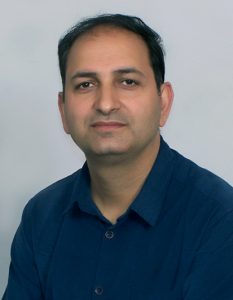 Athar Parvaiz is an award-winning researcher and writer based in Kashmir in the Himalayan region of South Asia. Mr. Parvaiz’s prolific writings illuminate environmental, health and agricultural challenges in the Global South with a special focus on the Himalayan region in South Asia. He has written about the ways in which the Himalayan region is adapting to changes posed by climate change.
Athar Parvaiz is an award-winning researcher and writer based in Kashmir in the Himalayan region of South Asia. Mr. Parvaiz’s prolific writings illuminate environmental, health and agricultural challenges in the Global South with a special focus on the Himalayan region in South Asia. He has written about the ways in which the Himalayan region is adapting to changes posed by climate change.
His writings are based on grounded and detailed reporting from regions where there is limited availability of data, and data is hard to gather. As a writer, Mr. Parvaiz connects his understanding of locally-embedded environmental issues to global policy responses: In 2009 and 2015, he reported on global climate change negotiations from Copenhagen and Paris with a focus on the implications for the Global South.
Mr. Parvaiz’s work is routinely featured in international, national and regional venues including Thomson Reuters, Mongabay, Inter Press Service, HUFFPOST, Scidev.Net, thethirdpole.net , Scroll, IndiaSpend, Down to Earth, The Wire and Kashmir Observer.
Mr. Parvaiz is currently conducting research and writing about the value of localized food systems in the Global South through a collaboration with the Food Systems Planning and Healthy Community Lab (Food Lab) and the Community for Global Health Equity at the University at Buffalo, State University of New York.
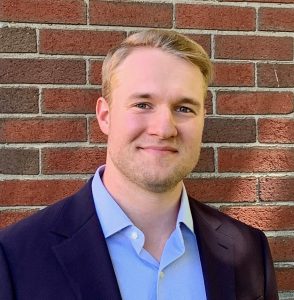 Erik Woyciesjes is a second-year Master of Urban Planning student specializing in
Erik Woyciesjes is a second-year Master of Urban Planning student specializing in
economic development. Prior to UB, Erik earned his Bachelor’s Degree in English
Literature from Union College with minors in Classics and Environmental Science. In
the years between his undergraduate study and UB, Erik worked in the Craft Beer
industry as a brewer, during which time he also earned a graduate certificate in GIS.
Erik is interested in studying how economic development and spatial analysis can be
applied to address the growing challenges of rapid urbanization, and globalization. Through his work he hopes to better understand how planning and policy research can be applied to address these issues as well as to cultivate and strengthen equitable food systems and healthy communities.
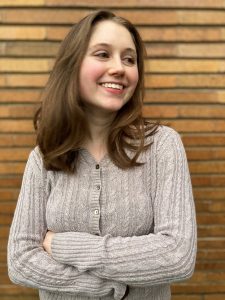 Lanika recently received her master’s degree in Urban and Regional Planning from the University at Buffalo. Her interests—which lie at the junction of sustainable agriculture and food equity—grew throughout her time at St. Lawrence University, where she interned on small-scale farms and with local food equity nonprofits before graduating with a Bachelor’s in Environmental Studies and Sociology. She then spent two service years working to address food inequities in the U.S., investigating and employing urban agriculture as a means of building community resilience. This work sparked Lanika’s interest in food policy, reaffirming her interest in designing healthier, more equitable cities, and inspiring her to pursue a specialization in Food Systems and Community Health during her time at UB.
Lanika recently received her master’s degree in Urban and Regional Planning from the University at Buffalo. Her interests—which lie at the junction of sustainable agriculture and food equity—grew throughout her time at St. Lawrence University, where she interned on small-scale farms and with local food equity nonprofits before graduating with a Bachelor’s in Environmental Studies and Sociology. She then spent two service years working to address food inequities in the U.S., investigating and employing urban agriculture as a means of building community resilience. This work sparked Lanika’s interest in food policy, reaffirming her interest in designing healthier, more equitable cities, and inspiring her to pursue a specialization in Food Systems and Community Health during her time at UB.
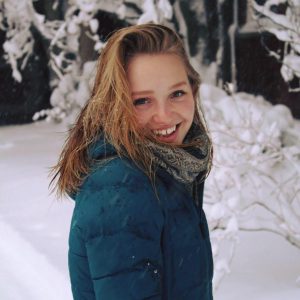 Having trained in environmental studies and economics with an engineering certificate at Wellesley College, Kelsey Gosch brings an interdisciplinary perspective to her work as a Research Affiliate in the UB Food Lab. In the lab, Kelsey focuses her work on food policy, supporting local and national projects (Growing Food Connections).
Having trained in environmental studies and economics with an engineering certificate at Wellesley College, Kelsey Gosch brings an interdisciplinary perspective to her work as a Research Affiliate in the UB Food Lab. In the lab, Kelsey focuses her work on food policy, supporting local and national projects (Growing Food Connections).
She has volunteered at small farms outside of Boston, MA, where she found her love for agricultural development and policy in both urban and rural settings. Currently she volunteers with Seeding Resilience Buffalo. During her spare time, Kelsey enjoys running and gardening.
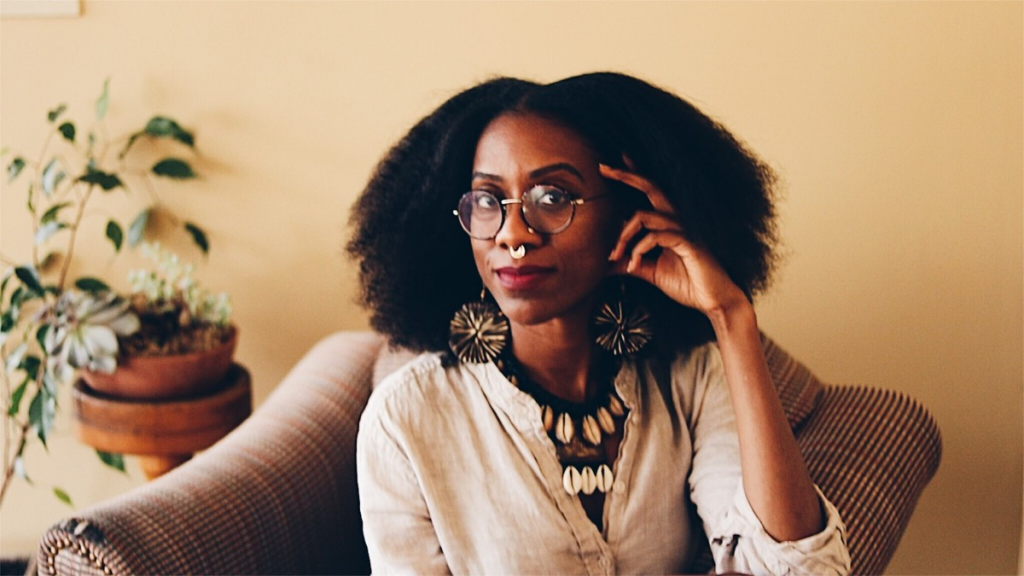 Bianca Davis is a recent graduate, earning her Masters in Dietetics. Her interest in dietetics is rooted in the various opportunities it provides to improve the eating behaviors and food environments of
Bianca Davis is a recent graduate, earning her Masters in Dietetics. Her interest in dietetics is rooted in the various opportunities it provides to improve the eating behaviors and food environments of
underserved communities worldwide. Through academic studies, she has gained extensive knowledge in nutrition, while developing skills in research, proposal writing, project coordination, and education. Her thesis research explored the intersection of environmental inequality through the lens of food environments, and the level of support they provide for healthful eating behavior. Bianca joined the Food Lab in the fall of 2019, prepared to strengthen her professional skills, build purposeful connections, and to manifest change. For leisure, Bianca enjoys adventure, urban farming, meditation, and
documentaries on this extraordinary world. In the near future, she will pursue her doctorate degree in a field that will further leverage her ability to intervene the shortcomings of our local and global food systems.
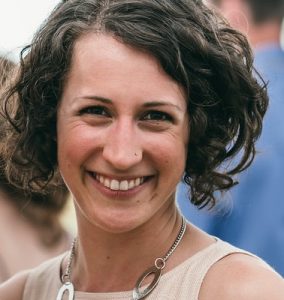 Erin Sweeney is a graduate of the University at Buffalo’s Master of Urban and Regional Planning (MUP) program, specializing in community health and food systems. She is a member of the American Planning Association, and a Western New York Prosperity Fellow alumna.
Erin Sweeney is a graduate of the University at Buffalo’s Master of Urban and Regional Planning (MUP) program, specializing in community health and food systems. She is a member of the American Planning Association, and a Western New York Prosperity Fellow alumna.
Her career prior to the MUP program focused on rural community development through just food systems, for consumers and farmers. During her time at UB, Erin co-authored a food system assessment for rural Chautauqua County, and conducted self-directed research on urban-rural narratives. As a research assistant in the Food Systems Planning and Healthy Communities Lab (Food Lab) and the Community of Excellence for Global Health Equity (CGHE), Erin both led and supported multiple projects in the Food Lab, including the haakh project in Kashmir, the Global Policy Database for City and Regional Food Systems, Plan-REFUGE, and several university-wide innovation workshops. She led teams to Odisha, India and Clarendon, Jamaica to collect data about the impact of urbanization, globalization and climate change on smallholders and other food system sector actors. Erin’s research explores inequities, disparities and power structures in planning processes and policies, particularly through food system-based channels and rural livelihoods.
As a Fulbright Student Scholar, Erin is currently living and Singapore to study food resiliency in Southeast Asia, developing policy recommendations that support small-scale farmers and food enterprise. She can be contacted at esweeney@buffalo.edu, or Erin.Sweeney@murdoch.edu.au.
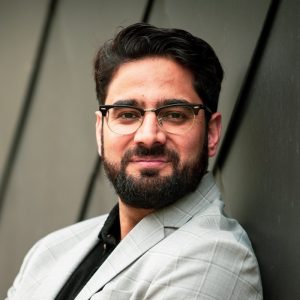

 Athar Parvaiz is an award-winning researcher and writer based in Kashmir in the Himalayan region of South Asia. Mr. Parvaiz’s prolific writings illuminate environmental, health and agricultural challenges in the Global South with a special focus on the Himalayan region in South Asia. He has written about the ways in which the Himalayan region is adapting to changes posed by climate change.
Athar Parvaiz is an award-winning researcher and writer based in Kashmir in the Himalayan region of South Asia. Mr. Parvaiz’s prolific writings illuminate environmental, health and agricultural challenges in the Global South with a special focus on the Himalayan region in South Asia. He has written about the ways in which the Himalayan region is adapting to changes posed by climate change. Erik Woyciesjes is a second-year Master of Urban Planning student specializing in
Erik Woyciesjes is a second-year Master of Urban Planning student specializing in Lanika recently received her master’s degree in Urban and Regional Planning from the University at Buffalo. Her interests—which lie at the junction of sustainable agriculture and food equity—grew throughout her time at St. Lawrence University, where she interned on small-scale farms and with local food equity nonprofits before graduating with a Bachelor’s in Environmental Studies and Sociology. She then spent two service years working to address food inequities in the U.S., investigating and employing urban agriculture as a means of building community resilience. This work sparked Lanika’s interest in food policy, reaffirming her interest in designing healthier, more equitable cities, and inspiring her to pursue a specialization in Food Systems and Community Health during her time at UB.
Lanika recently received her master’s degree in Urban and Regional Planning from the University at Buffalo. Her interests—which lie at the junction of sustainable agriculture and food equity—grew throughout her time at St. Lawrence University, where she interned on small-scale farms and with local food equity nonprofits before graduating with a Bachelor’s in Environmental Studies and Sociology. She then spent two service years working to address food inequities in the U.S., investigating and employing urban agriculture as a means of building community resilience. This work sparked Lanika’s interest in food policy, reaffirming her interest in designing healthier, more equitable cities, and inspiring her to pursue a specialization in Food Systems and Community Health during her time at UB. Having trained in environmental studies and economics with an engineering certificate at Wellesley College, Kelsey Gosch brings an interdisciplinary perspective to her work as a Research Affiliate in the UB Food Lab. In the lab, Kelsey focuses her work on food policy, supporting local and national projects (Growing Food Connections).
Having trained in environmental studies and economics with an engineering certificate at Wellesley College, Kelsey Gosch brings an interdisciplinary perspective to her work as a Research Affiliate in the UB Food Lab. In the lab, Kelsey focuses her work on food policy, supporting local and national projects (Growing Food Connections). Bianca Davis is a recent graduate, earning her Masters in Dietetics. Her interest in dietetics is rooted in the various opportunities it provides to improve the eating behaviors and food environments of
Bianca Davis is a recent graduate, earning her Masters in Dietetics. Her interest in dietetics is rooted in the various opportunities it provides to improve the eating behaviors and food environments of